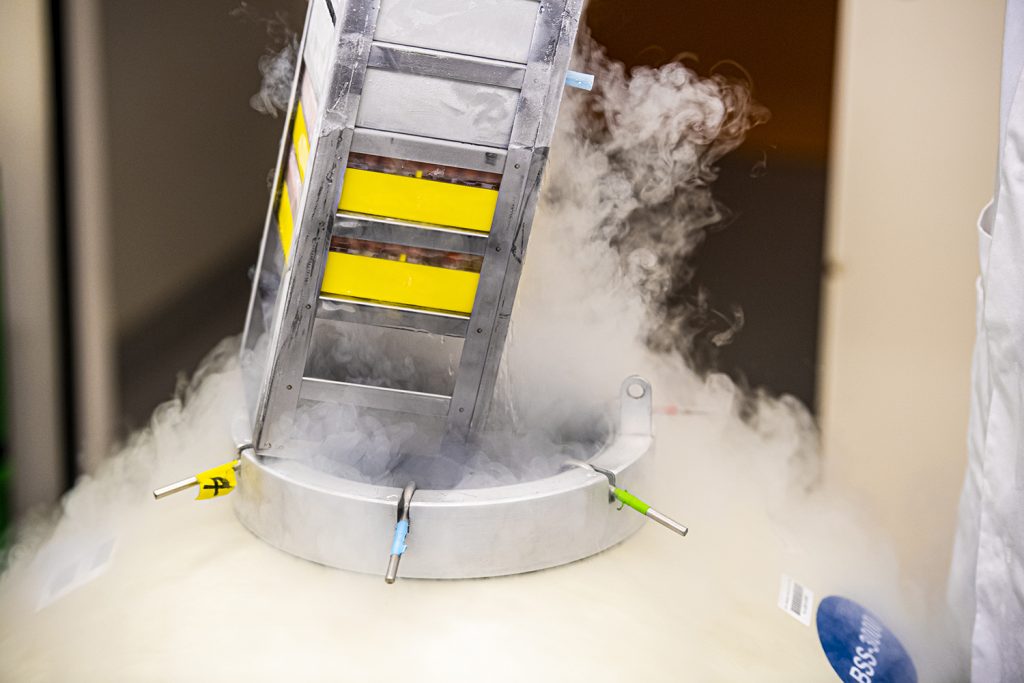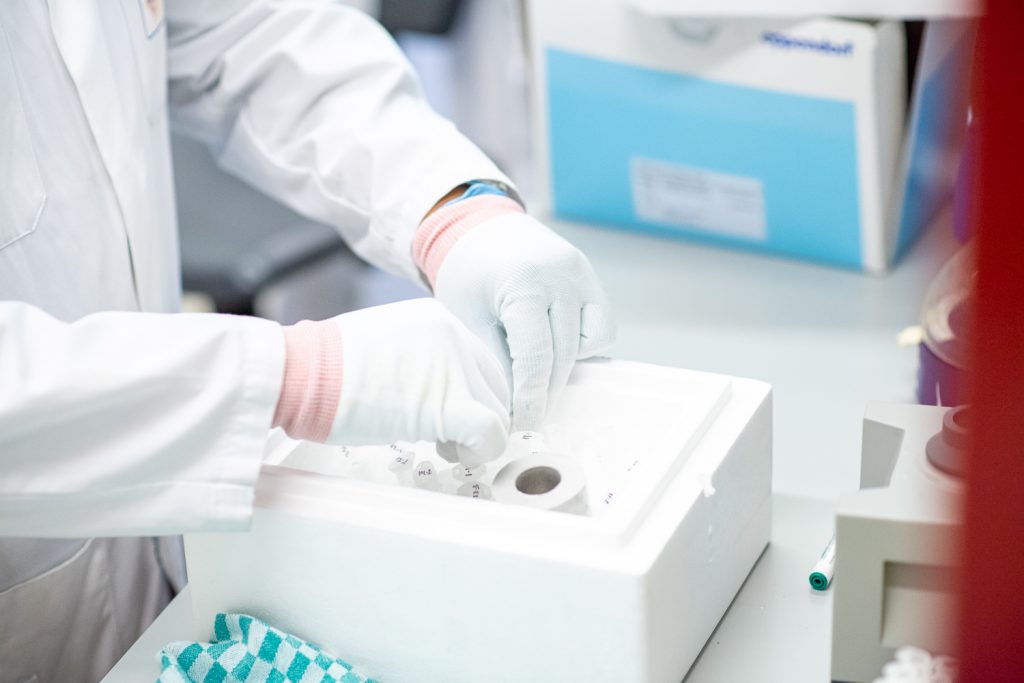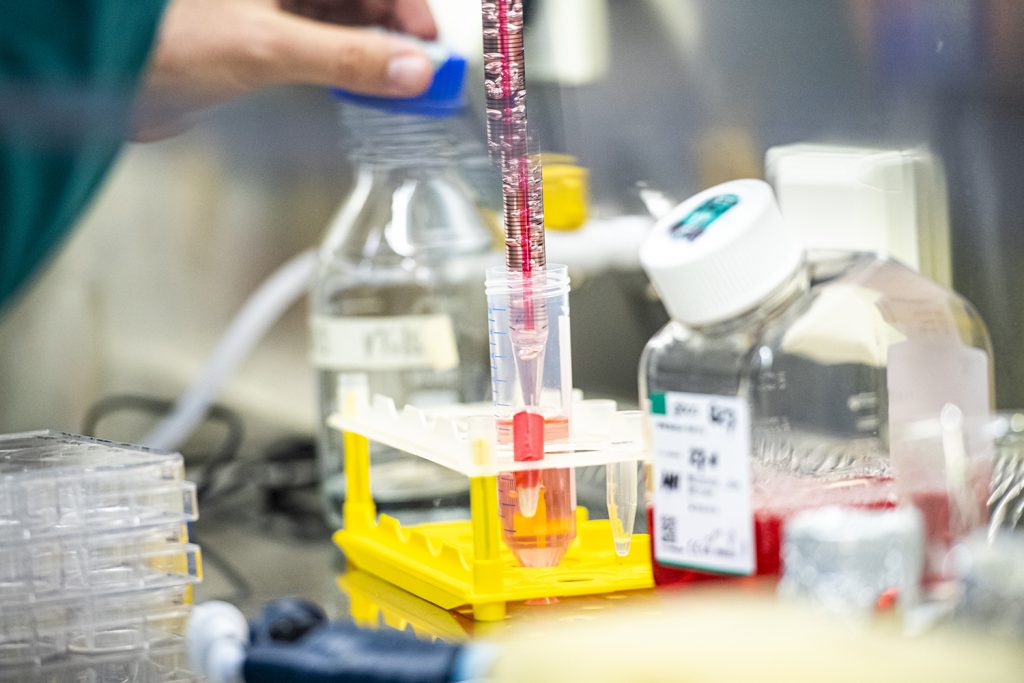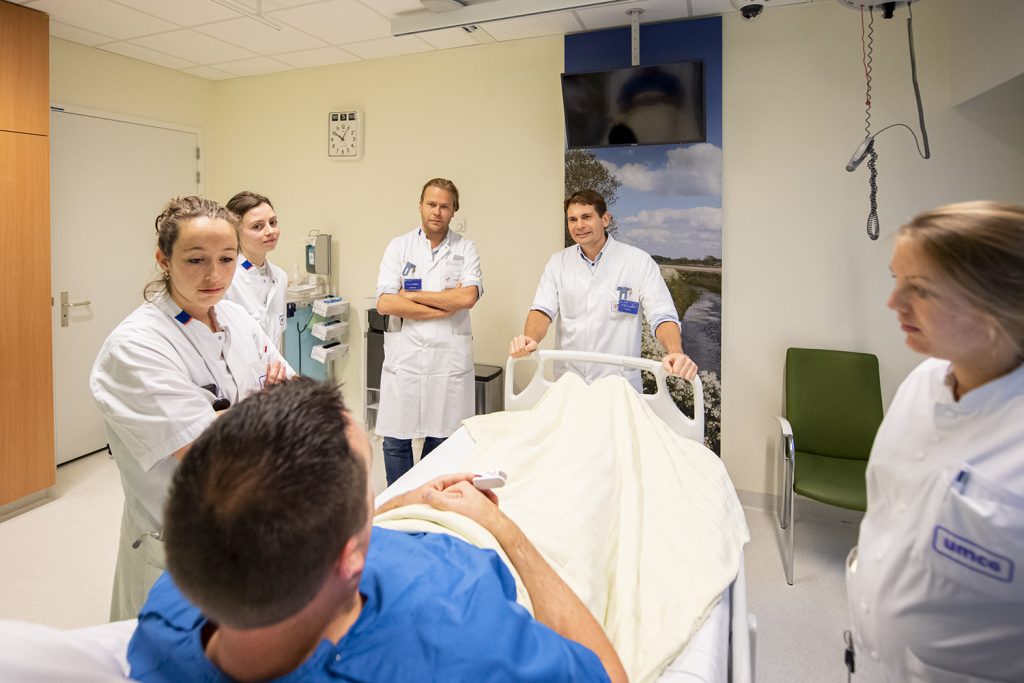
MITO-FORCE
MITOchondrial therapy to increase cardiac FORCE and enhance exercise performance
MITO-FORCE
The heart is the engine of life; an unremitting muscular pump that continuously circulates blood throughout the body to supply other organs with the energy to thrive. The heart depends on a continuous supply of energy in the form of ATP, which is produced in mitochondria, the energy factories of the cell. Mitochondria are unique multifunctional organelles which, in addition to energy production, regulate cardiac calcium handling, redox balance, cellular growth and cell death.
In patients with heart failure (HF) severe defects in mitochondria occur that cause mitochondrial oxidative stress, alter cardiac calcium handling, compromise ATP production and promote cardiomyocyte apoptosis. Cardiac ATP production falls short and the heart becomes unable to pump enough blood to meet the body’s energy demands. The failing heart is often compared with an “engine out of fuel”. The mechanisms responsible for mitochondrial dysfunction in heart failure are poorly understood and specific therapies are lacking.
We believe that MITOchondrial dysfunction offers an unique opportunity for target for therapy to restore the FORCE of the failing heart. In the MITO-FORCE project we aim to discover new therapeutic targets and develop new pharmacological interventions to restore mitochondrial function in heart failure.
Finding the cause of mitochondrial dysfunction in heart failure
We recently discovered mitochondrial reprogramming as a key mediator of mitochondrial dysfunction and heart failure development. We aim to identify and explore key transcriptional events that cause mitochondrial dysfunction in heart failure, using an omics approach (transcriptomics, metabolomics, proteomics). We have been able to identify several potential targets for therapy and are currently validating these targets in transgenic models systems. Our most recent work uncovered a crucial role for the mitochondrial protein ATPase inhibitory factor 1 in cardiac calcium handling an pathological cardiac growth.
Mitochondrial contributions to muscle growth in health and disease
Physiological stimuli such as exercise or pregnancy activate a coordinated physiological growth response where a proportionate increase in cardiomyocyte volume and mitochondrial density result in improvements in exercise performance. In response to pathological stressors such as hypertension or valve disease, the coordination is lost and mitochondrial growth is compromised. In this part of MITO-FORCE we aim to identify pathways responsible for physiological mitochondrial adaptations to exercise. We believe that improved understanding of the normal mitochondrial adaptations to exercise could lead to new strategies to treat or prevent mitochondrial dysfunction in HF. Recent work identified A-kinase interacting protein as a critical regulator of cardiac and mitochondrial growth in response to exercise.
Mitochondrial interventions
Mechanistic insights obtained from the strategies above are translated into pharmacological interventions that are tested in established animal models and proof of concept clinical trials. We recently discovered that Sodium Glucose Co-Transporter inhibitors improve cardiac function by reprogramming cardiac metabolism towards increased ketone oxidation. In addition, we discovered that oral ketone administration improves cardiac function. These insights are currently tested in the Ketone-HF project.
People involved
International collaborations
- John Walker, Cambridge University, Cambridge, UK
- Gerald Dorn, University of Washington St. Lois, St. Lois, USA
- Joan Brown, University of California San Diego, San Diego, USA
- Daniel Kelly, University of Pennsylvania, Philadelphia, USA
Press & publications
Mitochondrial reprogramming induced by CaMKIIδ mediates hypertrophy decompensation.
Westenbrink BD, Ling HL, Divakaruni A, Gray CBB, Zambon AC, Dalton ND, Peterson KL, Gu Y, Matkovich SJ, Murphy A, Miyamoto S, Dorn II GW, Brown JH Circ Res. 2015
view on publisher siteSodium-glucose co-transporter 2 inhibition with empagliflozin improves cardiac function in non-diabetic rats with left ventricular dysfunction after myocardial infarction.
Yurista SR, Silljé HHW, Oberdorf-Maass SU, Schouten E, Pavez Giani MG, Hillebrands J, van Goor H, van Veldhuisen DJ, de Boer RA, Westenbrink BD. Eur J Heart Fail. 2019
view on publisher siteOverexpression of A kinase interacting protein 1 attenuates myocardial ischemia / reperfusion injury, but does not influence heart failure development
Booij HG, Yu H, Tigchelaar W, van Gilst WH, de Boer RA, Sillje H, Westenbrink BD. Cardiovasc Res. 2016
view on publisher siteKetone Ester Treatment Improves Cardiac Function and Reduces Pathologic Remodeling in Preclinical Models of Heart Failure
Salva R. Yurista, Timothy R. Matsuura, Herman H.W. Silljé, Kirsten T. Nijholt, Kendra S. McDaid, Swapnil V. Shewale, Teresa C. Leone, John C. Newman, Eric Verdin, Dirk J. van Veldhuisen, Rudolf A. de Boer, Daniel P. Kelly, B. Daan Westenbrink. Circ Heart Fail. 2020.
view on publisher sitePress: Ketonenrijk dieet verbetert werking ziek hart
Zieke hartspiercellen blijken duidelijk meer energie te krijgen door de opname van ketonen. Hierdoor verbetert de pompkracht van het hart en neemt een verdere verslechtering van het hart af. Deze ontdekking hebben Groningse en Amerikaanse onderzoekers gedaan, met steun van de Hartstichting. De resultaten zijn van belang voor de meer dan 240.000 hartfalenpatiënten in Nederland. Ze kunnen leiden tot nieuwe behandelmogelijkheden, die de kwaliteit van hun leven sterk kunnen verbeteren. De onderzoeksresultaten zijn verschenen in het wetenschappelijke tijdschrift Circulation: Heart Failure.
Read the articlePress: Ketonenrijk dieet verbetert werking zieke hartspiercellen
Zieke hartspiercellen blijken duidelijk meer energie te krijgen door de opname van ketonen. Hierdoor verbetert de pompkracht van het hart en neemt een verdere verslechtering van het hart af. Dat blijkt uit een onderzoek met proefdieren, onder leiding van UMCG-cardioloog Daan Westenbrink. De onderzoeksresultaten zijn verschenen in het wetenschappelijke tijdschrift Circulation: Heart Failure.
Read the articlePress: Voeding aangevuld met ketonen verbetert werking ziek hart
Een voeding aangevuld met ketonen verbetert de pompkracht van een ziek hart. Hartspiercellen blijken duidelijk meer energie te krijgen door de opname van ketonen. Ze zorgen ervoor dat het hart niet verder verslechtert bij hartfalen. Deze ontdekking deden Groningse en Amerikaanse onderzoekers, met steun van de Hartstichting.
Read the articleATPase Inhibitory Factor-1 Disrupts Mitochondrial Ca2+ Handling and Promotes Pathological Cardiac Hypertrophy through CaMKIIδ
Mario G Pavez-Giani, Pablo I Sánchez-Aguilera, Nils Bomer, Shigeki Miyamoto, Harmen G Booij, Paula Giraldo, Silke U Oberdorf-Maass, Kirsten T Nijholt, Salva R Yurista, Hendrik Milting, Peter van der Meer, Rudolf A de Boer, Joan Heller Brown, Herman W H Sillje, B Daan Westenbrink. Int. J. Mol. Sci. 2021.
view on publisher site




